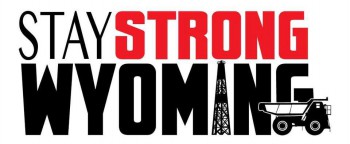(Casper Star Tribune, October 30) – The federal government finalized a rule change this week giving public land regulators the ability to reduce royalty rates for non-energy mineral producers.
The two changes will give mineral producers, like those mining trona in Wyoming, a discount if the mining spurs domestic production of soda ash, phosphate and other minerals, according to an official rule change published Monday on the Federal Register.
The Bureau of Land Management said the changes would not only give the agency the ability to grant relief on royalties and other fees for mineral producers, but the revisions would also “remove unnecessary and overly burdensome requirements” to bolster mining in the U.S.
Wyoming’s mining industry welcomed the regulatory boost, saying the relief would help struggling operators adjust to the depressed demand caused by the COVID-19 pandemic.
“The royalty rate reduction is very important for our trona producers,” Travis Deti, executive director of the Wyoming Mining Association, said in a written statement. “Natural soda ash from trona is Wyoming’s largest International export, and the global competition with synthetic soda ash from China is fierce. The royalty rate reduction will help our producers remain competitive, especially as they work to recover from the impacts of the COVID-19 pandemic.”
Wyoming’s sodium-rich Green River Basin holds the largest known trona deposit in the world.
Workers refine mined trona ore into soda ash or baking soda, among many other products. Soda ash is a critical ingredient in countless everyday products, such as glass, detergent and even electronics.
But right now, over 40% of global soda ash demand comes from China. Wyoming lawmakers have long held that burdensome and expensive regulatory conditions curtail domestic development of critical minerals. In turn, the Trump administration has advanced a considerable number of regulatory rollbacks to aid industry.
When the rule change was proposed one year ago, Gov. Mark Gordon endorsed it, calling a royalty rate reduction for Wyoming’s soda ash “essential.” He also said the rule would “protect jobs in both Wyoming and other states in the industry supply chain and will also enable strategic capital investment for future growth and job creation.”
Earlier this year, a major trona company in Green River had to lay off several workers in response to the economic downturn caused by the COVID-19 pandemic. The company, Genesis Alkali, said a “destruction in demand” for the finished products dependent on soda ash during the pandemic had posed a significant challenge to the company.
Rep. Liz Cheney and Sens. John Barrasso and Mike Enzi have also backed the regulatory amendments.
“The Trump Administration has taken important action to reduce soda ash royalty rates in order to level the playing field for Wyoming and other U.S. trona producers,” Cheney said in a statement.
But Project on Government Oversight, a watchdog group, has said the discounts given to mineral producers failed to provide taxpayers with a fair return on the extracted minerals. About half of all royalty payments made by mineral producers flow back to Wyoming.
“It’s unfortunate that the government is looking to give away more resources at the taxpayers expense,” said Tim Stretton, a policy analyst at the Project on Government Oversight.
The new rule is set to go into effect at the end of November.
